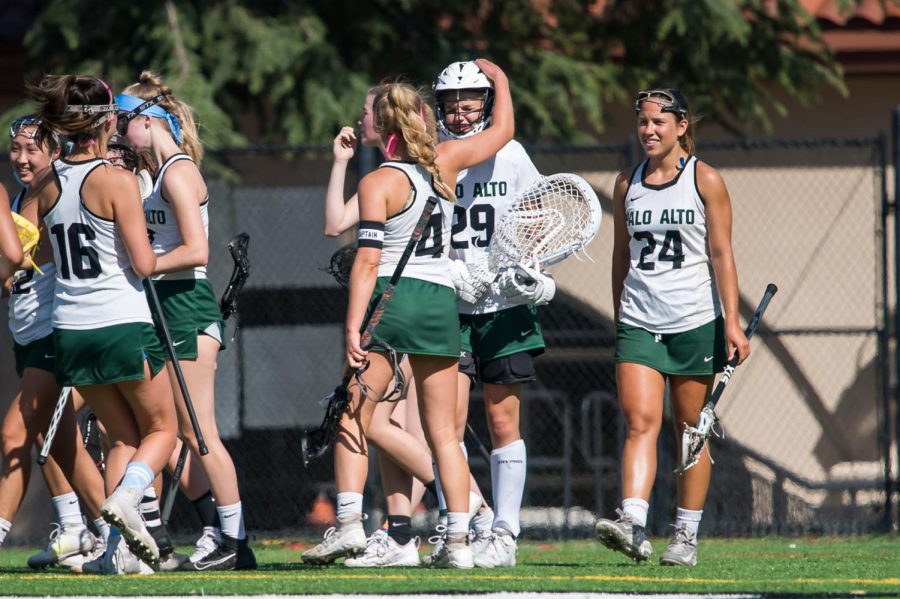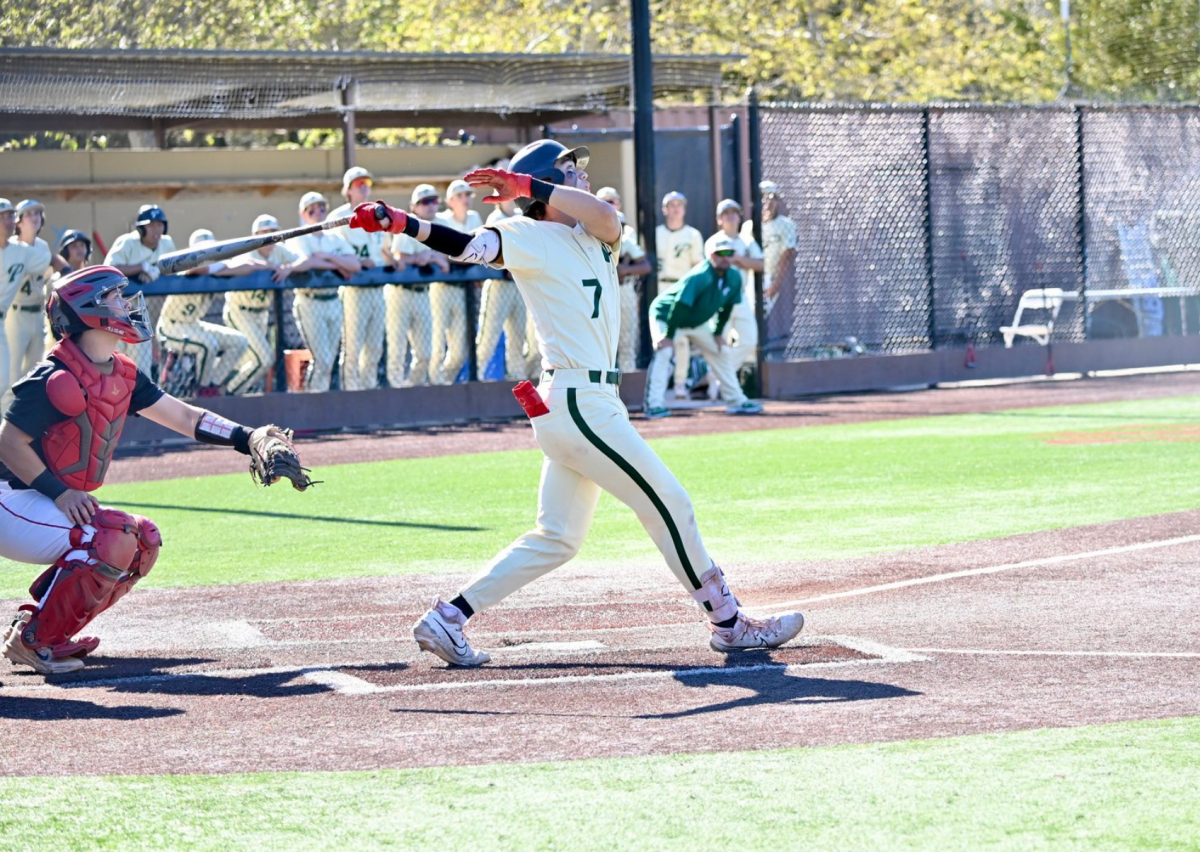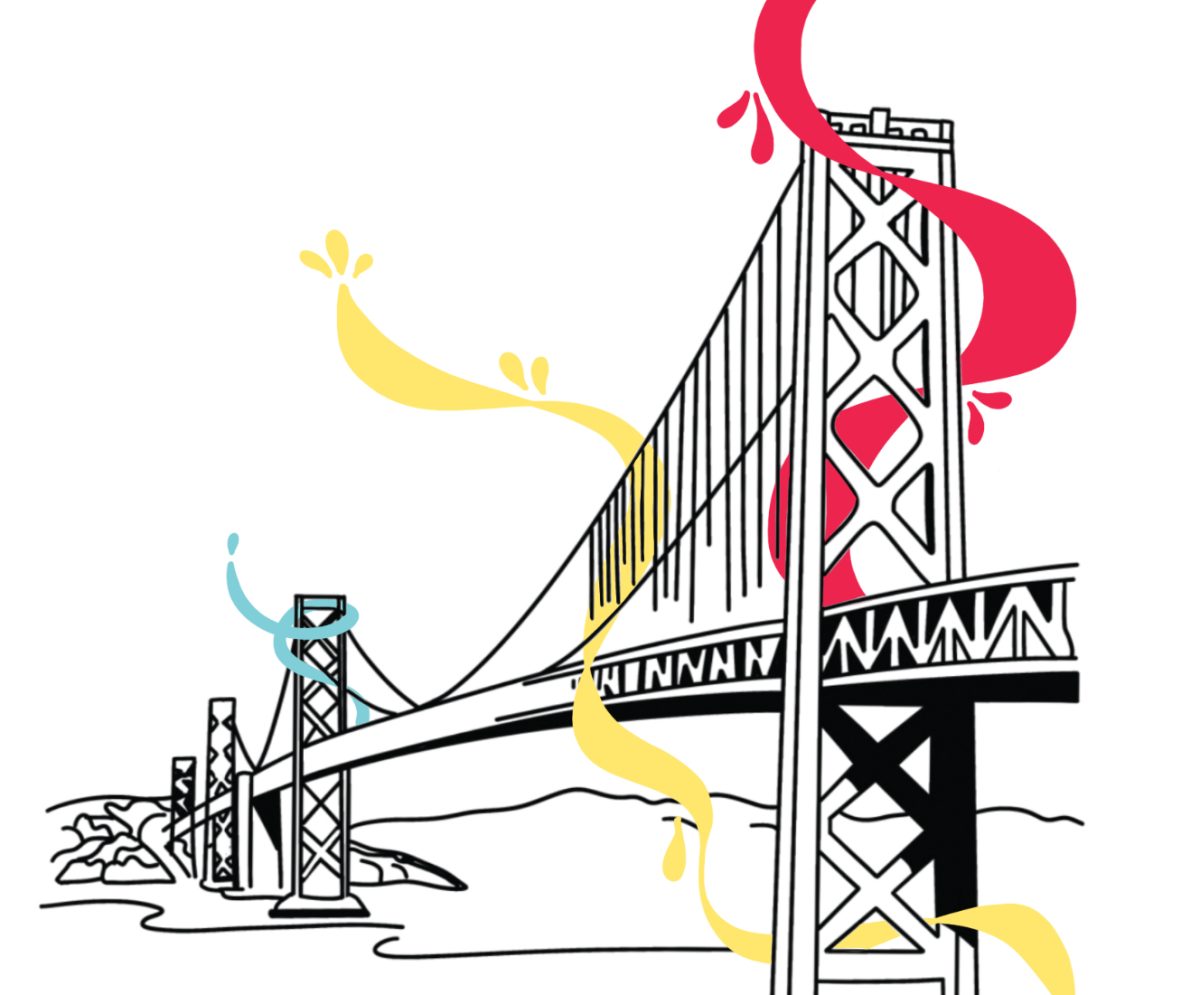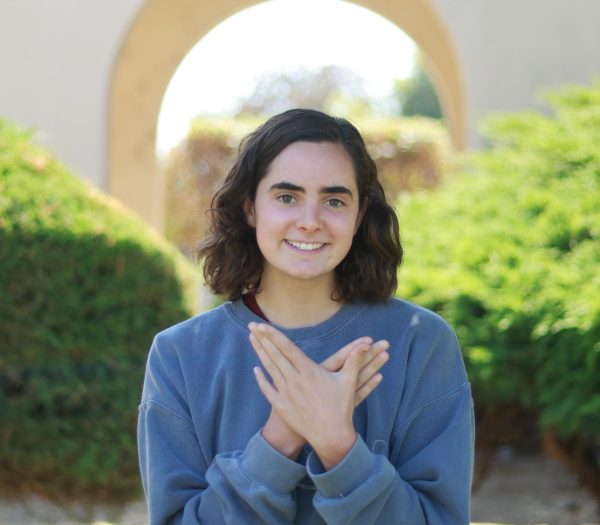Longtime Oakland sports fan David Harris is facing the loss of his big-name teams, something he has experienced before.
He was born in the Bronx in New York City, playing baseball and running track, and attending the renowned sports high school Power Memorial, which boasted Kareem Abdul-Jabbar as an alum.
“Growing up, I was a sports nut,” Harris said.
Just a few decades before his birth, Jackie Robinson became the first African American to play on a major league baseball team, making the Brooklyn Dodgers a major point of pride and community in his city.
“The Dodgers became the heart of the city,” he said. “Especially [for] the Black community in New York, that was just everything.”
But just before he was born, the city experienced something that altered the culture there irrevocably. Both the Dodgers and the Giants baseball teams moved from New York across the nation to California.
“When the Dodgers and Giants left, that left a hole in the city that exists today,” Harris said.
Now, Harris is once again experiencing the loss of several local sports dynasties. As Oakland’s three biggest sports franchises, the Oakland A’s baseball team, the Raiders football team and the Warriors basketball team, relocate to other major cities, the Bay Area’s sports landscape has been permanently altered.
The Bay Area has a long history of sports excellence, from the Oakland A’s three-peat of World Series wins in the early 70s, to the Forty Niners dynasty in the 80’s and 90’s, and the Golden State Warriors dominance in the 2010’s. But no longer will Oakland be able to lay claim as the home of these powerful teams.
“[When these teams leave,] it’s like the soul of a city gets torn apart,” Harris said.
The exodus of Oakland’s sports teams began in 2019, with the departure of the Golden State Warriors. The Warriors were the most decorated team of the 2010’s, as they won three NBA titles and set the NBA regular season win record, going an astonishing 73-9 in 2016. As their fame grew, so did their ticket prices, until they finally brought in enough revenue to privately finance a brand new stadium, leaving Oracle Arena for the $1.4 billion dollar Chase Center located across the bay in San Francisco.
[When these teams leave,] it’s like the soul of a city gets torn apart.
— David Harris
As the Warriors became more and more popular, they were able to spend money on a new arena, as well as raise their ticket prices. Moving to San Francisco, where the average income is around half a million dollars more (according to the US Census Bureau), they can target a wealthier fan base.
Charles Idelson, another longtime Oakland sports fan, feels that all sports should make a better effort to make sports games more accessible for those who can’t afford higher prices.
“I can understand the high prices a little bit if they’re going to pay their athletes what they deserve,” he said. “[But] I don’t think there’s ever been discussion about if there’s a way for these leagues that are making so much money off it to allocate some funding for people that can’t afford those ridiculously high prices. The Warriors I mean, look how much they charge for their seats. … I think for people that can’t afford the tickets, I think it’s worth it [to evaluate] ways to provide reduced cost prices for people that can’t afford to pay the cost of those seats.”
Harris notes that the Warriors’ situation was slightly different due to being the only regional basketball team in the bay.
“The Warriors see themselves as a regional asset,” he said. “That’s because there’s only one basketball team in the region. You had two baseball teams in the region and two football teams. So the Warriors can move from Oakland to San Francisco and get away unscathed [because] they’re still ours.”
Similarly, Idelson feels that the Warriors departure, though sad, was not nearly as upsetting as the other two franchises.
“I think the Warriors situation is a little different in a couple of ways,” Idelson said. “I think they paid [privately]. I don’t think they took a bunch of public money to build that stadium in San Francisco, the Chase Center. At least they stayed in the Bay Area; I’ve been able to go to a couple of Warriors games in San Francisco. I wish they stayed in Oakland, but I don’t feel as if we were ripped off as badly by the Warriors as we were by the owners of the Raiders.”
The following year, the Raiders headed east for the Nevada desert, approved by the NFL for a transfer to Las Vegas. The 2010’s had been a decade of mediocrity for the Raiders. They had been hunting for a better stadium for decades, trying to renovate or leave their Oakland stadium, the Oakland Coliseum (which had been consistently rated as one of the worst stadiums in the NFL and was shared with the Oakland A’s).
When the city of Oakland declined to devote enough public funds, the Raiders turned to Las Vegas, a location that team owner Mark Davis had had his eyes on for decades, even buying the website domain “lasvegasraiders.com” in 1998. The state of Nevada dedicated 750 million dollars to building the new stadium (paid for by an increase in hotel room taxes).
Oakland, in an effort to keep the Raiders in the city, announced that they would commit 200 million dollars to improving the infrastructure surrounding the Coliseum. Despite this, the Raiders continued their move to Las Vegas, paying a 350 million dollar fee to the NFL for relocating.
When they moved to Las Vegas, under the leadership of their new president, Sandra Douglass Morgan (the first Black woman to serve as an NFL team president) they led the NFL in revenue in 2022, raking in around 90 million dollars. The Raiders average ticket cost in Oakland was $85 dollars, compared to $153 dollars last year in Las Vegas. The price difference can’t be attributed to the Raiders’ success, as their record in 2019 was 7-9, compared to 8-9 in 2023.
It will still be many years until their investments are repaid, but there has been an undeniable increase in revenue for the Raiders as a team.
Despite this increase in revenue, there haven’t materialized many benefits for the taxpayers who funded the stadium. The key argument is that when a tourist spends extra money on their hotel room (due to the hotel room tax increase), that is money that will not go to a local restaurant, a tip for a bartender, or paying a local performer. This has led locals to question Nevada’s decision to devote so much public money to such a private enterprise.
As Michael Schaus wrote in the Nevada Independent, “One doesn’t have to be a savvy Wall Street banker to see that spending hundreds of millions of dollars so other entities can turn a profit isn’t exactly a winning investment strategy.”
This move, beyond just being an economically iffy decision made by Nevada politicians, is also particularly hated by members of the Oakland community; during their final game, the Raiders blew a substantial lead and lost, leading disgusted fans to boo and shower the field with trash. Idelson shares a similar frustration with the deal, noting the substantial amount of money that Las Vegas committed to the project.
“It was really nice when we had three major professional teams in the city, but I’m really not a fan of billionaire owners extorting the public and public budget to increase their own profitability,” Idelson said. “And so while I think it’s kind of sad to see teams leaving Oakland, I don’t support the efforts of Mark Davis (the Raiders owner) and his father before him to extort the city of Oakland and Alameda County to build them a new stadium. They suckered Las Vegas into building a stadium for them.”
This is a pattern that upsets many Oaklanders, including Anne Janks, a longtime resident.
“There’s a lot of things that we could build in Oakland that we need, and none of those are a new sports stadium, [especially] for people who can build their own stadium,” Janks said. “The way that the stadiums are built now is more resource extraction, where it’s fewer seats and more box seats. I mean, like, screw that, build it yourself.”
Their owners are going to do what they want to do. I mean, John [Fisher] who owns the A’s hasn’t talked to the public or any journalists in like 20 years. … He doesn’t know a damn thing about baseball.
— David Harris
Similarly, Harris feels that this shows a sad transition of sports teams from being the central points of their communities to instead focusing on turning a profit at the expense of fans.
“[They moved because of] the lure of more money,” he said, “I don’t even get worked up anymore about these teams being community assets. Their owners are going to do what they want to do. I mean, John [Fisher] who owns the A’s hasn’t talked to the public or any journalists in like 20 years. … He doesn’t know a damn thing about baseball. Otherwise, he wouldn’t have traded away a team that would have been a World Series champion [team].”
Now, the team owned by Fischer, Oakland’s storied major league baseball team, the Oakland Athletics, or Oakland A’s, are planning to abandon the East Bay city. The A’s will follow the Raiders to the bright lights of Las Vegas, and into a new 1.5 billion dollar stadium, one which will not be finished for another four years, and which the public has paid 350 million dollars for. This public price tag has already prompted a lawsuit from a Nevada teachers union.
Alexander Marks, a spokesperson for the suit, told Nevada media that “public money should not go to a billionaire for a stadium while Nevada ranks 48th in the nation with the largest class sizes and highest educator vacancy rates in the country.”
Harris is hopeful that this may result in a successful suit.
“[A’s owner John Fisher is] gonna get his because the teachers in Nevada are gonna win that lawsuit and he’s gonna be left hanging out to dry,” he said. “In the end, he’ll probably still get to move to Vegas with the A’s. But he’s going to lose a bundle.”
The Las Vegas mayor, Carolyn Goodman, even suggested that the A’s stay in Oakland, saying, “Certainly you have the fan base there [in Oakland.] We already have the Raiders and each city needs to have that spirit of sports.”
Nevertheless, the A’s moved, to the chagrin of their fan base, including Idelson.
“I’ve been an A’s fan since the early 70s,” he said. “I was sad, very sad to see them leave and my older son is a fanatic A’s fan. And he was devastated by them leaving and the last time we went, he wore a ‘Sell the A’s’ shirt.”
The A’s stadium in Las Vegas won’t be finished for another four years and their lease on the Coliseum will expire by the end of the 2024 season. It doesn’t look like they are planning to renew the lease, and instead will likely be rotating between various stadiums for the next three years.
Janks notes that this situation seems to reveal the poor nature of the move.
“I think that what we’re seeing happen right now in Las Vegas [with the A’s]… is evidence that the whole thing was kind of a scam,” she said.
The general feeling from many Oakland residents is that the loss of their teams is primarily because Oakland wasn’t willing to commit as much public money for the private gains of these multi-billion dollar teams as other cities were.
“I would say it’s a microcosm of a much larger social problem that exists in this country, which is the hijacking of public policy by giant corporations and politicians,” Idelson said.
Idelson notes that other cities are going through similar issues.
I would say it’s a microcosm of a much larger social problem that exists in this country, which is the hijacking of public policy by giant corporations and politicians.
— Charles Idelson
“If you look nationally, there’s an increasing lack of support for the public trough being robbed by billionaire [sports team] owners,” Idelson said. “I have family in San Diego and they express no sympathy for the San Diego Chargers wanting to extort the city, and then moving to LA.”
Oakland is a city that suffers from funding issues on many fronts, and Oakland residents like Idelson firmly believe that public funding should be used to serve the public, instead of these large sports teams.
“[In cities like Oakland where] we have massive, massive public funding problems, you know, whether it’s education, whether it’s massive homelessness, whether it’s lack of affordable housing, there are far more important public needs for allocation of funding resources,” he said. “The idea that any of those [cities] would give money to billionaires to build a public arena is just reprehensible. It’s just disgraceful.”
Harris points out that this is just another example of systematic disinvestment in Oakland as a city.
“This city has been historically disinvested in,” Harris said. “So how do you pick up a city that has real significance, real talent, a real identity unto itself? I mean, the Black Panthers started here, there’s so much that people look for, but it’s been systematically disinvested in. … When you keep pulling out the resources, the money, how do cities like this ever come back? But they will and they can.”
Beyond just losing their big-time teams, Janks notes that the city of Oakland also lost many incredible athletes.
“The Y [Oakland YMCA] has a mural of [Stephen Curry] reading to kids and he was very intentional about doing things with the Oakland Community and for the Oakland Community,” Janks said. “I think he was very aware of really focusing on areas that are underserved.”
Oakland is the birthplace of many skilled athletes, and Janks feels that the pride that one can hold being from Oakland and playing for Oakland may now be lost.
If you want to stop thinking of it all as a business for a minute and think of them as human beings, a lot of [the athletes] were very happy to be in Oakland, on a good team that was in a decent city. — Anne Janks
“We’ve had sports figures like Marshawn Lynch who were really from Oakland, and never forgot that they were from Oakland, and that was very meaningful,” she said. “And it’s kind of sad that that setup is a little bit gone. You can’t be from Oakland and play for the Oakland team [anymore]. And yeah, that’s a little bit too bad.”
This is a loss not only for the fans, but to some extent, for the players.
“Oakland wasn’t a bad place to live as a [player] on a major sports team,” Janks said. “For your family, it was a good place. I’d rather, if I were a major sports figure, live in Oakland than live in Las Vegas. If you want to stop thinking of it all as a business for a minute and think of them as human beings, a lot of [the athletes] were very happy to be in Oakland, on a good team that was in a decent city.”
Harris’ organization, the Urban Strategies Council, works with young people, and young men in particular, in Oakland to help them achieve their fullest potential. He notes that, in his time working with young people, he has found that they feel anger over the loss of their teams.
“They’re pissed,” he said. “They’re pissed, that they think the guys are greedy, and they [say] ‘if they want to go, get the hell out.’”
Hopefully these owners can feel some amount of the shame they earned by disappointing their young fan base in this way. It is undeniable that the entire process by which the three teams moved was unfortunate, for both fans and players.
But beyond that, it was a sad demonstration of how socializing the costs and privatizing the profits of major league sports is a truly sad practice in which the multi-billionaire owners of these teams get to play the game, and the fans who follow for the love of the game are left to get played.
As Harris eloquently said, “As much as I think that sports, and in particular in Oakland, have corporatized to the dominance of these wealthy families that are able to own these teams and make decisions without accountability with such impunity, I think that teams nonetheless, help create an identity or a place that helps bring people together, especially in tough times. And I wish these teams did have more loyalty to the people who have been left behind.”
Some may say that the golden age of Oakland sports is over. But Oakland has never been a city to give up.
“I drive around looking at the playgrounds and basketball courts in the city and you can see lots of people playing sports,” Idelson said. “I have been to a lot of Oakland basketball games. I’ve been to a lot of sports, soccer games in Oakland. So there’s a lot of sports that go on here. You know there’s two baseball leagues for young people. … both [of which] my son’s played in. There’s a lot of sports activity that happens all the time in the city.”
Harris sees hope in the young people and their athletic talent.
“Across the country, I lived in Flint, Michigan, where they’ve pumped out tremendous basketball players,” he said. “I lived in New York where it’s like their own [industry]. And I’ve lived in South Florida where they send kids out to the sugarcane fields to run around and that’s where they become great NFL running backs. The future of this city [Oakland] lives in the talent that comes from the city. And there will always be amazing athletic talent that comes out of the city. That talent could shine a light on Oakland and the East Bay and the issues it’s facing.”
Along with the city’s athletic fervor being far from extinguished, some other teams have been slowly rising to fill the major-league-shaped hole in the hearts of the Oaklanders. One such team is the Oakland Roots soccer team. According to their website, they are “a purpose-driven men’s soccer team that seeks to harness the magic of Oakland and the power of sports as a social force for good.” This service-driven attitude may be a breath of fresh air following the years of the Vegas-bound teams using Oakland as a bargaining chip.
“The Oakland Roots have kind of popped up as the teams have been leaving,” Janks said. “You see a lot of people, a lot of diverse people, wearing Oakland Roots stuff. Now I think that it may be possible to just shift to teams that are a lot more accessible to people. That would also enable people to actually go to the games and do some of that on the community building front without the resource extraction.”
Beyond this, Harris also notes other possibilities arising.
“Those behemoths the NFL and MLB have left,” he said. “We have the NBA here but we also have the emerging soccer teams, and we have the potential for a WNBA team … but it’s gonna come from the way the athletic talent highlights the city and its kids.”
So while Oakland may have lost some of their bigger teams, this may provide a positive chance for the city’s sports environment to turn towards a community-focused approach and focus on what should really drive the decisions of our biggest teams: a love of the game.







